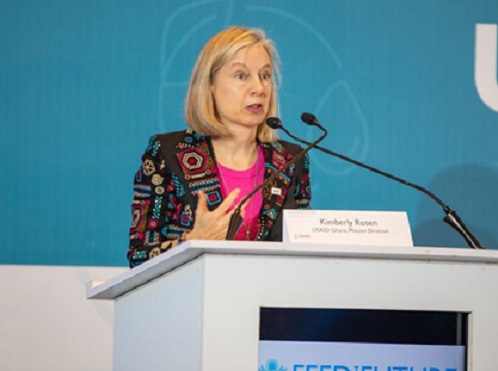
By Kofi N. ANDAH
The shutdown of USAID has sent shockwaves around the world, sparking concerns about the devastating impact on global stability, U.S. national security and the livelihoods of millions of people.
At the heart of the issue is the Trump Administration’s decision to freeze all foreign assistance, except military aid and special highly militarised emergency aid, and the subsequent closure of USAID’s Washington D.C. headquarters.
Key concerns
Humanitarian consequences: The closure of USAID’s headquarters has brought vital and lifesaving work around the world to a grinding halt. Soup kitchens in Sudan, health clinics in Haiti and essential programmes across Latin America, the Middle East and more are just a few examples of the devastating impact.
Economic consequences: The shutdown of USAID will have far-reaching economic consequences, including the loss of jobs, disruption of supply chains and decreased economic stability. This move will also undermine U.S. economic interests abroad, ceding influence to China and other rival nations.
Global stability and American national security: Foreign aid is a critical tool for preventing conflict, promoting stability and advancing U.S. interests abroad. The shutdown of USAID undermines U.S. influence abroad, creating a power vacuum that its rivals will exploit. This move also puts Americans at risk by disrupting critical programmes that prevent conflict and promote stability.
How can developing countries navigate this uncertainty?
Developing countries can explore alternative funding sources and partnerships to mitigate the impact of the USAID shutdown. Diversifying funding sources could include:
- Private sector partnerships: Collaborating with private companies, foundations and NGOs to access funding and expertise.
- Multilateral institutions: Engaging with organisations like the World Bank, International Monetary Fund and United Nations agencies to secure funding and support.
- Regional development banks: Tapping into regional development banks, such as the African Development Bank, to access funding for development projects.
Strengthening local capacities is also crucial:
- Building local institutions: Investing in local institutions, such as ministries of health and finance, to enhance their capacity to manage development programme
- Developing local expertise: Fostering local expertise in areas like project management, monitoring and evaluation to reduce dependence on international aid.
Exploring innovative financing mechanisms can also help:
- Blended finance: Utilising blended finance models that combine concessional funding with private sector investment to support development projects.
- Impact investing: Attracting impact investors who seek both financial returns and social impact to support development initiatives.
Looking ahead
In conclusion, the shutdown of USAID is a devastating blow to global stability, U.S. national security and the livelihoods of millions of people. It is imperative that the U.S. reexamine its approach to foreign assistance, prioritising diplomacy, humanitarian aid and economic development over military aid to advance U.S. interests abroad.
Ultimately, developing countries need to reduce their reliance on USAID funding and continue to drive development progress despite the shutdown by adopting strategies such as those outlined earlier.
In the meantime, developing countries need to work with their multilateral institution partners to encourage the United States to reverse its decision.
And let’s read Dambisa Moyo’s Dead Aid again.
About the author
The author is the Country Director for Crown Agents Ghana Ltd., an international development firm with 65 years’ experience in Ghana. Crown Agents Ghana Ltd. works with its partners to accelerate self-sufficiency and economic development.
The post Navigating the shutdown of USAID appeared first on The Business & Financial Times.
Read Full Story









Facebook
Twitter
Pinterest
Instagram
Google+
YouTube
LinkedIn
RSS